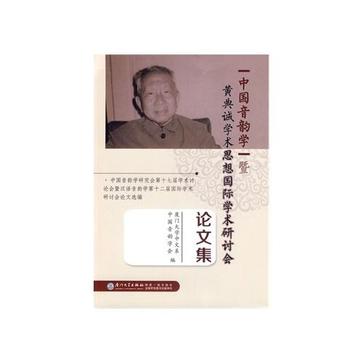
Max Weber and Karl Marx
书刊介绍
内容简介
Karl Lowith was the son of a Munich artistand studied philosophy and biology in Munich, Freiburg and Marburg. He began his teaching career in 1928 as Privatdozent in Marburg, working under Heidegger, but was forced to leave in 1934. After two years in Rome he held a chair at TohkuUniversity, Sendai, Japan from 1936-1941. In 1941 he moved to the Theological Seminary at Hartford, Connecticut and, in1949, to the New School for Social Research, New York. In 1952 he returned to Germany as Professor of Philosophy at theUniversity of Heidelberg where he remained until his retirement. He died in 1973. His best known work, From Hegel to Nietzsche , was published in Zurich in 1941 and in English translation in 1964. In Max Weber and Karl Marx Lowith, whose philosophical approach was a product of Heidegger's existentialism, showed how there was a convergence towards a common 'life philosophy'. Lowith's analysis of the philosophical anthropology of these two major social scientists shows that much of the ideological dispute between Marxism and Sociology has been the result of mutual misunderstanding.
作品目录
Preface to the new edition Bryan S.Turner 1Note on the translation 33
Introduction to the translation 34
MAX WEBER AND KARL MARX
1 Introduction 42
Statement of the problem 42
General characterisation of Weber and Marx 44
2 Weber’s interpretation of the bourgeois-capitalist
world in terms of ‘rationalisation’ 51
The starting point of Weber’s research 51
Rationality as the problematic expression of the modern world 62
Rationality as the capacity for individual responsibility
amidst universal dependency 72
3 Marx’s interpretation of the bourgeois-capitalist world
in terms of human ‘self-alienation’ 89
The historical development of the concept from Hegel through
Feuerbach to Marx 89
The economic expression of human self-alienation in the
commodity 96
The political expression of human self-alienation in bourgeois
society 102
The direct social expression of human self-alienation in the
proletariat 109
4 Weber’s critique of the materialist conception
of history 119
Weber’s indirect critique of Marx in the dispute with
Stammler 120
Weber’s critique of Marx in the sociology of religion 121
Bibliography 126
Index 129
· · · · · ·
作者简介
Karl Löwith (January 9, 1897 – May 26, 1973), was a German philosopher, a student of Heidegger.
Löwith was born in Munich. Though he was himself Protestant, his family was of Jewish descent and he therefore had to emigrate Germany in 1934 because of the National Socialist regime. He went to Italy and in 1936 he went to Japan. But because of the alliance between the Third Reich ...
(展开全部)
相关推荐
-

逆水寒
温瑞安,他被台湾《中国时报》总编辑高信疆形容为“第一个合并了诗与剑的光芒的才子”;他被上海文人曹正文誉之为“武侠世界的奇才”;他被《联合报》主笔陈晓林认为是“以...
-

椅子与身体
黑川雅之(1937— )日本建筑和工业设计新时代的代表性人物。其设计作品包括灯具、家居及工业产品,蕴含东西方审美理念,杂糅高贵、欲望和死亡,以及深邃的禅味。最喜...
-

疯婆子传·株林野史·春染绣塌·浪蝶偷香·风流和尚·僧尼孽海
《痴婆子传》又名《痴妇说情传》,上下两卷。卷端有目录三十三则,正文中没有回目标题。书前有序,末有短跋,清刻本。作者芙蓉主人,其名及履历不可考。因《肉蒲团》里两次...
-

九州·缥缈录
江南,男,安徽合肥人。目前的身份是作者,以及媒体经理。代表作品有《此间的少年》、《一千零一夜之死神》、《九州·缥缈录》系列、《光明皇帝》系列等。
-

这一天,给你的歌
王小立,女,上海最世文化发展有限公司签约作者。《最小说》最受读者喜欢的作者之一。治愈系小说代表,漫画家。作品充满画面感,文字细腻,风格轻松,是个技巧和剧情并重的...
-

Political Propaganda and Ideology in China at the End of the Seventh Century
This second edition of Antonino Fortes seminal work, originally published in 197...
-

实用版法规专辑:知识产权法
实用版法规专辑:知识产权法 本书特色 本书全面收录了《中华人民共和国著作权法》、《中华人民共和国专利法》、《中华人民共和国商标法》、《中华人民共和国反不正当竞争...
-

失业名校毕业生日记
毕业于剑桥大学却找不到工作的马修,在父母的催促下,暂时放下文学梦想,去给富豪家的孩子当家教。众多雇主看中马修的名校光环,期待马修帮助他们把孩子送入英国顶尖的名校...
-

真愛的功課
一行禅师说她是真菩萨。是的,小小年纪,她已从父母身上学会体察贫者,经常把余钱买晚餐分赠街童。关爱的种子早在她敏感的心灵孕育。才上大学,她一个人前卫地跑到贫民区扶...
-

金赛性学报告
阿尔弗雷德·C.金赛(Alfred C.Kinsey)是美国著名性学专家,同时也是印第安纳大学的生物学家。他根据调查研究成果出版了《男性性行为》,被人称为《金赛...
-

纵然明日离世,不碍今日浇花
《纵然明日离世,不碍今日浇花》内容简介:突然患了病,就会对死亡产生畏惧,进而时刻生活在惶恐之中。日本顺天堂大学医学部病理学
-

何枝可依
《何枝可依》内容简介:韩非子讲过一个故事:守株待兔。宋国有个庄稼汉,别提多傻。他家地里有棵树,给他带来好运。有只倒霉的兔子,眼神不好,一头撞死在树上,让他想入非...
-

做一个聪明的教师
王晓春,北京教科院基础教育研究所高级教师。主要研究方向包括有家庭教育、教师观念更新和语文教学改革等,多年来出版家庭教育难题会诊、家教参谋、走进孩子的心灵、寻找素...
-

人体极限
【作者】山崎昌广,本科毕业于日本九州艺术工科大学(现九州大学)艺术工学院,在熊本大学取得医学博士学位。广岛文化学园大学教授、人类健康学院院长,广岛大学名誉教授。...
-

论诸神的本性
本书是西塞罗写于公元前45—前44年的对话体哲学著作。他在本书中坚持“新学园派”的怀疑主义立场,以“神存在与否”这一问题为起点,进一步阐释了神的形象、家园或居所...
-

Presidentialism and Democracy in East and Southeast Asia
Presidentialism and Democracy in East and Southeast Asia examines the impact of ...
-

厦门大学中文系《中国音韵学暨黄典诚学术思想国际学术研讨会论文集》
厦门大学中文系、中国音韵学会编著的《中国音韵学暨黄典诚学术思想国际学术研讨会》收入中国音韵学暨黄典诚学术思想国际学术研讨
-

番茄设施栽培
番茄设施栽培 本书特色 近一二十年来,市场越来越开放,农业生产分工越来越细,种菜的农民也越来越专业,他们不仅在露地大面积种菜,还建造塑料大棚、日光温室,甚至蔬菜...
-

学会谈判
本书作者系知乎知名答主、live课程优秀主讲人,系列课程收获5万听众、5星好评推荐人人都能学会的谈判技巧,帮助你跨越可能面对的各种工作、生活情境本书内容来自作者...
-

谚语辞书
谚语辞书 本书特色 ★16开精装,上海辞书出版社出版★所谓谚语,便是古代的流行语,既有系统性、知识性,但也有一定的局限性★本书既收社会谚,又收自然谚。自然谚包括...





